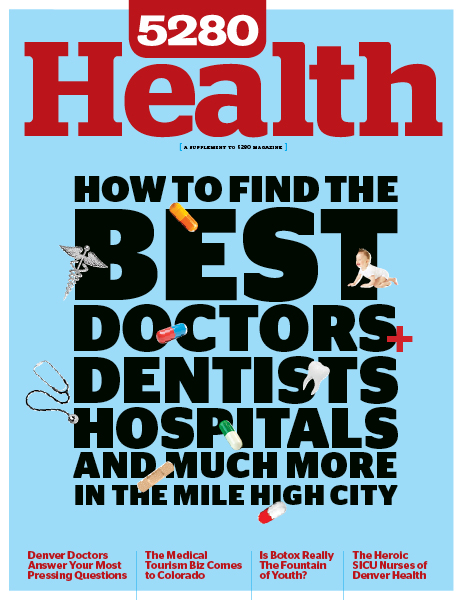The Local newsletter is your free, daily guide to life in Colorado. For locals, by locals.
She tracked down outbreaks of polio in india, examined the lives of AIDS-orphaned children in Africa, and worked to stop tobacco use in Europe. Closer to home, she helped assess Hurricane Katrina evacuees at their temporary homes in Lowry and coordinated the massive response to the 2009–2010 H1N1 epidemic in Adams, Arapahoe, and Douglas counties. Now Dr. Tista Ghosh, a medical epidemiologist with the Tri-County Health Department in Greenwood Village, is focusing on the one thing that’s killing more Coloradans—and Americans in general—than anything else: lifestyle diseases like stroke, heart disease, and obesity. As a doctor working in public health, Dr. Ghosh toils mostly behind the scenes, but the systematic changes she strives to achieve could improve the health of an entire population.
Q: What led you to a career in public health versus private practice?
I trained as an internal medicine doctor so every day I saw a hundred patients with the same problems, everything from the flu to heart attacks to food poisoning. I could treat each individual as my patient, but I realized I could do more by affecting and monitoring the health of a population as a whole rather than helping one person with heart disease. In public health, I’m working to fix the underlying cause instead of just treating the result.
Q: So public health campaigns that tell us to breast-feed our kids or quit smoking or never try meth—that’s what you do?
Yes. We’re there playing a bigger role. We’re trying to change group behaviors. But the Tri-County Health Department does other things, too—childhood and international travel immunizations, emergency preparedness plans, birth and death certificates.
Q: Your career was focused on infectious disease for a long time. Why the switch to chronic disease?
I still oversee our infectious disease program—we monitor for foodborne illnesses, H1N1, West Nile, rabies—but infection is not killing most Americans. It’s chronic disease. And we need to figure out a smart way, in the public health arena, to combat those health issues.
Q: OK, but infectious diseases are still the most interesting, right?
Well, yes, infectious diseases are exciting, but you have to look at what’s affecting people most. And something interesting did happen with these chronic diseases, too. It’s not like our genes changed in the last 10 or 20 years. We didn’t acquire an obesity gene. Something changed in our environment. A lot of what changed is the way we live. We rely on cars. We have moved into more suburban environments, which are less amenable to walking.
How we’ve built our world recently has made us less active. And we can correct that. We can correct that through public-health initiatives.
Q: Are lifestyle diseases something new for the health department?
There has been a push in the last 20 years to start looking at chronic diseases. But chronic diseases aren’t funded very well. There are all kinds of grants for preventing infectious disease, but it’s harder with chronic disease. We do have programs that work on these lifestyle diseases; however, we’re having to find ways to expand our efforts without having to rely on grant funding, which is often pegged to the topic du jour and then dries up the next day.
Q: So what’s the reality of chronic disease here in Colorado?
We just got a $10.5 million grant from the federal government to work on our policy-related efforts on living an active lifestyle. Our rates of obesity in Colorado have been doubling in the last 10 years. We want to start working to stop that now. We’re handing out money to cities and organizations to promote accessible places to walk and bike; to provide safe routes for kids to walk to school; to help schools provide healthier food and promote wellness; and to foster community gardens. These policy efforts try to make it easier for people to be healthy and harder for them to be unhealthy.
For more information, visit www.tchd.org.








